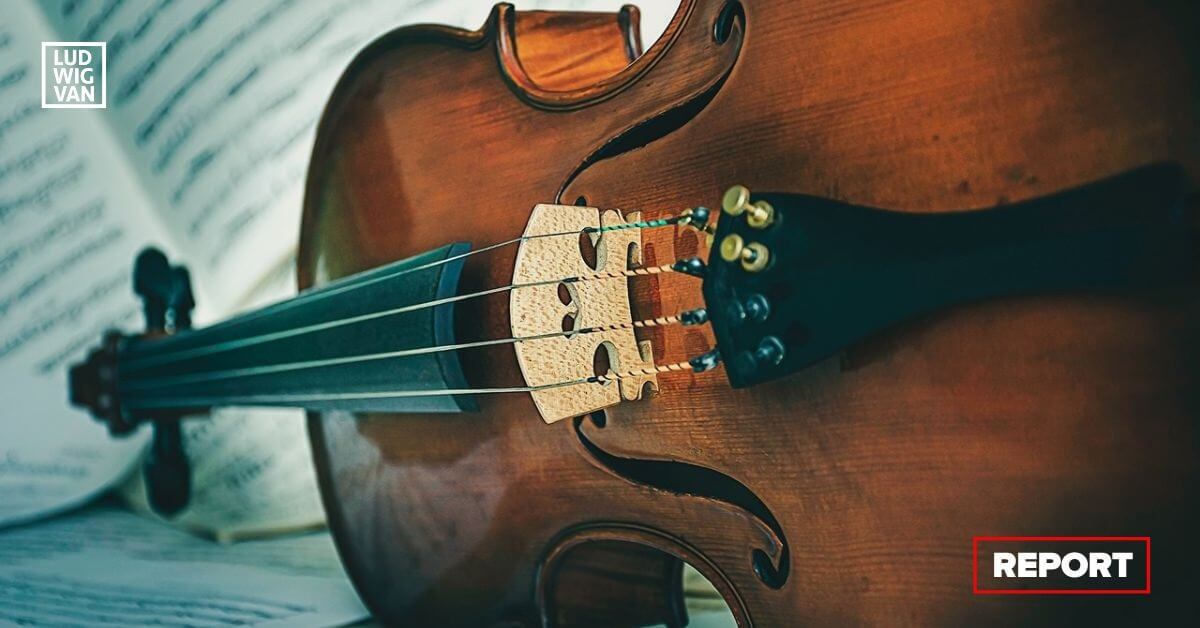
The Banff Centre for Arts and Creativity is currently hosting the third iteration of the Canadian Indigenous Classical Music Gathering (ICMG), led by faculty members Cris Derksen and Eliot Britton.
The first ICMG in 2019 gave rise to Indigenous Musical Sovereignty, a statement that takes ownership of Indigenous art — as opposed to “Indigenous-inspired” art by others. “We seek an end to those musical works by outsiders that shock audiences and re-traumatize our most painful experiences,” it reads. “To non-Indigenous composers who seek to tell “Indigenous-inspired” works: be honest with yourself and ask why you feel compelled to tell this story and whether you are the right person to do so.”
The statement came after several high profile cases of artists claiming disputed Indigenous ancestry in Canada.
Based on the proceeding of the last ICMG, held in December 2021, an Open Letter was published on social media on August 9. Signed by the attendees, Andrew Balfour (Cree), Cris Derksen (Cree-Mennonite), Jeremy Dutcher (Wolastoq), Michelle Lafferty (Tłı̨chǫ Dene), Beverley McKiver (Anishinaabe), Melody McKiver (Anishinaabe-Lithuanian-Scottish), Jessica McMann (Cree), and Sonny-Ray Day Rider (Blackfoot) the document calls for changes that will create more room in the classical music world for Indigenous artists, and a better future for Indigenous young people, in particular.
There were several areas of concern that the writers of the letter discuss.
- Collaborations: Collaborators are valued, but must understand that working on Indigenous-funded projects means leaving key decisions and credit in the hands of Indigenous artists.
- Appropriations: Indigenous stories are best told by Indigenous artists.
Several of the issues the letter points out, while seen through the lens of an Indigenous identity, are also applicable to many others on a broader basis. Essentially, they look to break down the very real barriers that prevent participation in the world of classical music.
- Disability and Mental Health Issues: Recognition of the generational toll of the residential schools and systemic oppression when dealing with Indigenous stories and artists.
- Ageism: The reality is that many Indigenous artists begin their careers well into adulthood, and not as a result of a system of education that begins childhood, which adversely affects their career trajectories.
- Classism: Expensive private lessons, not accessible to most people, are still the gateway to a career in classical music, not to mention the cost of instruments.
- Racism: The music community should reflect the community we all live in.
- Homophobia, transphobia and sexism: Recognition of the persistence of stereotypical expectations based on gender and colonialism.
- Location: There should be as much opportunity for kids in Tuktoyaktuk as there is in Toronto.
The open letter can be read in full here.
#LUDWIGVAN
Get the daily arts news straight to your inbox.
Sign up for the Ludwig van Daily — classical music and opera in five minutes or less HERE.
- PREVIEW | SUMMER OPERA LYRIC THEATRE Presents Handel’s Xerxes, Mozart’s Idomeneo & Puccini’a La Boheme July 26 To August 4 - July 26, 2024
- PREVIEW | YENSA Festival V.2 Offers Black Flames Performances & Other Ways To Celebrate Black Women In Dance - July 25, 2024
- PREVIEW | Canadian Talent Conspicuous In The Met: Live In HD 2024-25 Season - July 25, 2024



